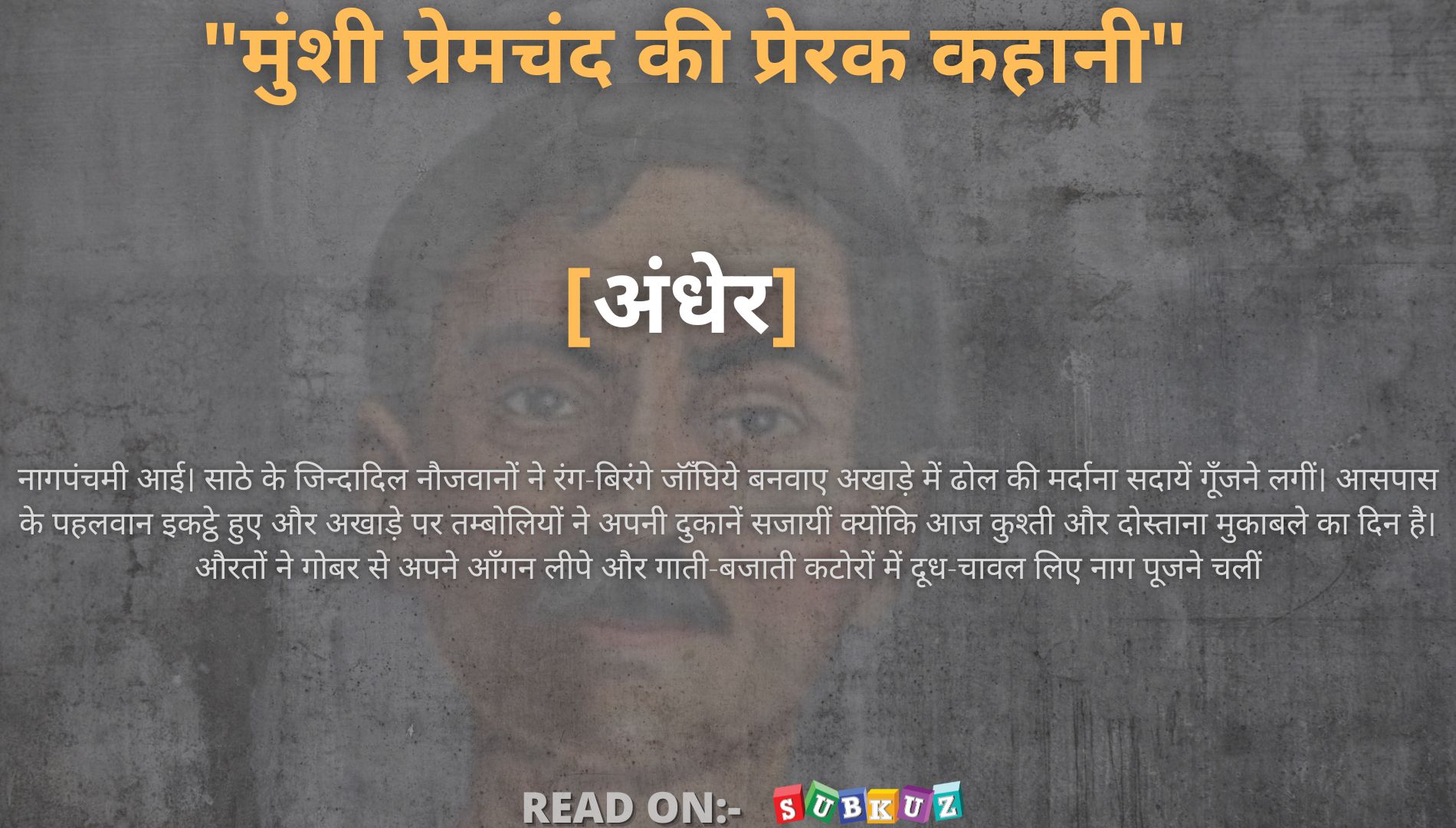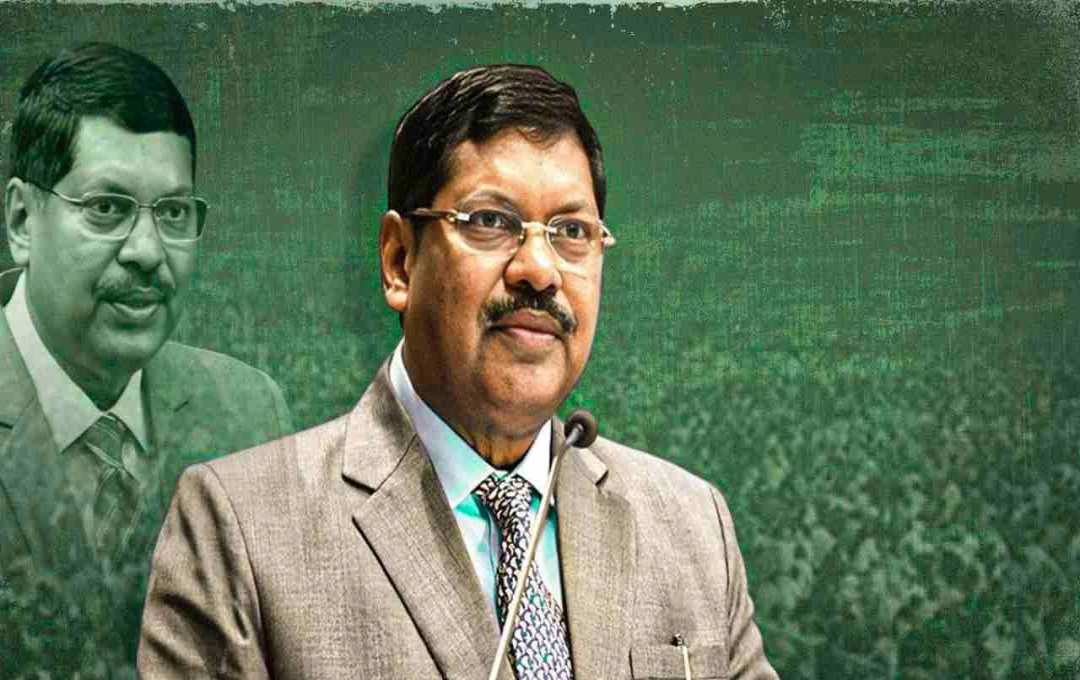Friends, our nation has been a cradle of great men and women, from ancient sages and poets to writers and musicians. The countless works created by these individuals are invaluable treasures. Today, young people in this digital age seem to be lost, and we are drifting further from our heritage and precious jewels. subkuz.com consistently strives to bring you not only these invaluable treasures, but also entertaining stories, news, and information about the world. Here is a truly inspiring story, written by the renowned author, Munshi Premchand.
Darkness
Nag Panchami arrived. The spirited young men of Sathe donned colorful loincloths; the drums in the arena echoed with manly sounds. Wrestlers from nearby villages gathered, and the vendors set up their stalls, for today was the day for wrestling and friendly competition. Women plastered their courtyards with cow dung and, singing and playing music, carried milk and rice in bowls to worship the serpent god.
Sathe and Pathe were two rival villages, situated on the banks of the Ganges. Because farming was not overly strenuous, disputes and feuds frequently arose between them. A rivalry had existed between them since time immemorial. The Sathe people prided themselves on never allowing the Pathe to raise their heads. Likewise, the Pathe considered humbling their rivals the greatest achievement in life. Their history was filled with tales of victory. The Pathe herdsmen would sing:
The Sathe people are all cowards, the Pathe people are the leaders.
And the Sathe washermen would sing:
The Sathe are warriors, with hands always holding swords.
Those who consider the Pathe their incarnation are doomed.
This rivalry and excitement was instilled in children with their mother's milk, and Nag Panchami was the ideal and historical occasion to demonstrate it. Preparations for this day were made throughout the year. Today, a crucial wrestling match was scheduled. Sathe was proud of Gopal, and Pathe of Baldev. Both warriors entered the arena carrying the wishes and hopes of their respective communities. The spectators were captivated. The village watchmen, having observed the large gathering of sticks and clubs, and the fiery glare in the men's eyes, based on past experience, disappeared from sight. The match unfolded within the arena. Baldev was grappling, Gopal maneuvering. Gopal possessed strength, and Baldev confidence in his skills. For a while, the arena echoed with the sounds of the match, then suddenly, many people erupted in joyful shouts, throwing clothes, utensils, money, and sweets into the air. Some tossed their worn turbans into the air. The zealous young men of Sathe surrounded Gopal, lifting him into their arms. Baldev and his companions watched Gopal with tear-filled eyes, gritting their teeth.
Ten o'clock at night, during the month of Sawan. Dark clouds covered the sky. The darkness was absolute, as if light itself had ceased to exist. Lightning flashed intermittently, only to deepen the oppressive darkness. The croaking of frogs were the only signs of life; otherwise, death surrounded them. The silent, daunting, and somber huts and houses of Sathe, viewed closely in the darkness, looked like black sheep. Neither children cried, nor women sang. The elderly did not chant the name of God.
But far from the villages, beyond noisy streams and banyan forests, lay the fields of paddy and millet. Sathe farmers guarded their fields, placing watchtowers at intervals. The earth was below, darkness above, and silence stretched for miles. Groups of wild boars were visible here, herds of nilgai there; they had no companions other than their beedis, no helpmates other than their fires. The farmers, startled, were on high alert. Darkness is another name for fear; even a pile of earth, a stump, or a heap of grass could appear threatening. Darkness brings life to them. Yet these b-willed, courageous, and determined farmers endured all this hardship so that they could provide their fortunate brethren with the necessities of life.
Among these guards was today's hero, the pride of Sathe, Gopal, who, sitting on his watchtower, sang softly to stay awake:
My eyes have fallen on you, I regret it.
Suddenly, he heard the sound of someone approaching. Like a deer listening to the sounds of dogs, Gopal listened intently. Sleepiness vanished. He grabbed his stick and left his watchtower. Darkness surrounded him, and light rain fell. As soon as he stepped out, he was struck by a blow from a heavy stick. He fell to the ground and lay unconscious for the rest of the night. No one knows how many blows he received. His attackers, satisfied, thought they had finished him. But life remained.
It was the unyielding men of Pathe who, taking advantage of the darkness, had retaliated for their defeat.
(...rest of the article continues in a similar format and style...)






